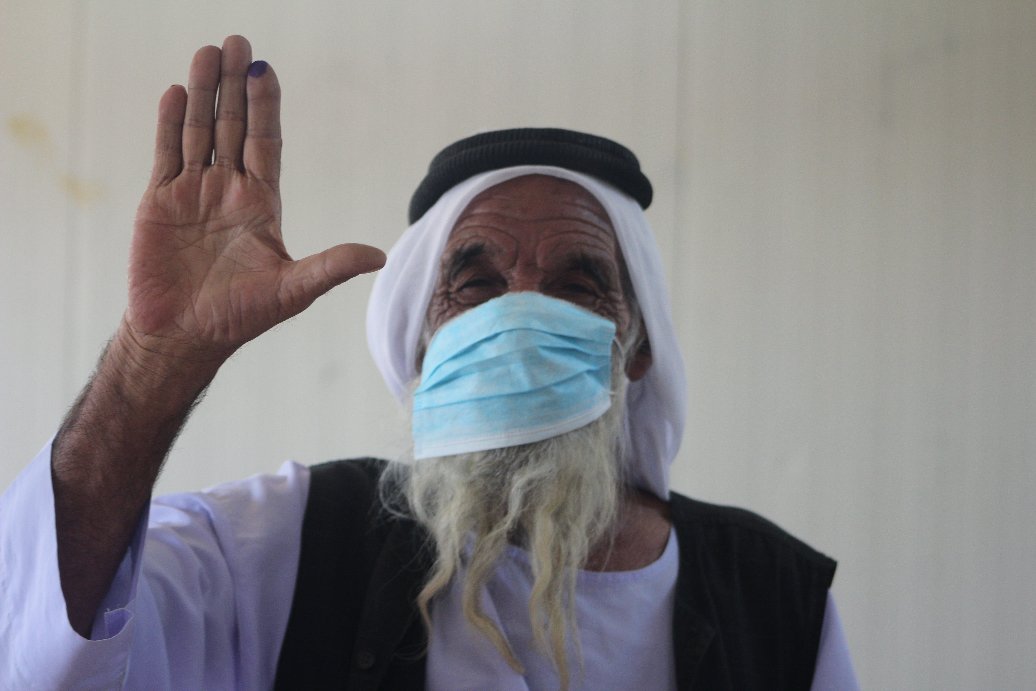A former deputy in the Iraqi parliament for the Ezidi (Yazidi component) confirms that their efforts are continuing to increase the number of Yazidis quota seats in parliament in proportion to the number of people in the component, according to what is stated in the constitution.
And Article 49 of the Iraqi constitution specified the ratio of one seat for every 100,000 people.
In accordance with paragraphs (b, e, and d) of Article 13 of the Parliamentary Elections Law that was repealed by the Federal Court, one quota seat was allocated for each of the Ezidi, Shabak and Faili Kurds minorities in the House of Representatives.
On February 22, 2022, on the basis of that constitutional article and based on a lawsuit submitted by Khaleda Rasho, deputy in the fourth parliamentary session of 2018 to 2021, the Iraqi Federal Court ruled that the representation of minorities from the Yazidi sect, Shabak, and Faili Kurds in the Iraqi parliament through quota seats is unconstitutional.
The Federal Court, in its decision regarding the representation of the components, required the equality of the Yazidis with the Christian component.
One quota seat was allocated to each of the Yazidi and Shabak components in Nineveh governorate and the Faili Kurds in Wasit governorate out of a total of 329 seats in the House of Representatives, as well as a seat for Sabean Mandaeans in Baghdad and five seats for the Christian component in each of Baghdad, Kirkuk, Nineveh, Erbil and Dohuk.
"I filed an appeal against Article 13 of Parliamentary Elections Law No. 9 of 2020 while I was a deputy. The Federal Court decided the case in our favour, and ruled that that article was unconstitutional," Rasho told KirkukNow
"The decision indicates that allocating a single quota seat to the Yezidis and the other components is not commensurate with the number of Yezidis, Shabak and Faili Kurds, so the number of their seats must be increased," Rasho added.
"The next step to implement the Federal Court's decision rests with the House of Representatives, as to whether it will receive a sufficient number of votes to increase the number of quota seats for the Yazidi component.”
In the first parliamentary elections that took place in 2005, the Ezidis obtained a single quota seat, at a time when their number throughout Iraq was up to 550,000, according to the statistics of the Kurdistan Regional Government KRG.
We tried at the time to increase the number of Yazidis seats, but the deputies did not support us
In 2010 and 2019, the Federal Court requested an increase in the number of Ezidis' quota seats in Parliament, but this request was not taken into account.
The former Yazidi MP in the Iraqi parliament explained, "We tried at the time to increase the number of Yazidis seats, but the deputies did not support us, .... so I have filed this lawsuit and did our duty and it is the parliament’s duy and votes to be guaranteed in favor of amendment and endorsement of Electoral law.”
Ezidis are an ethno-religious minority over half a million population, mostly residing in Shingal and Shekhan districts, in northern Iraqi province of Nineveh.
The militants of Islamic State ISIS extremist group in 2014 attacked their communities accusing them of being heretics, killing thousands of men and taking thousands of women and children as sex slaves, in an atrocity the United Nations U.N. described it as genocide.





